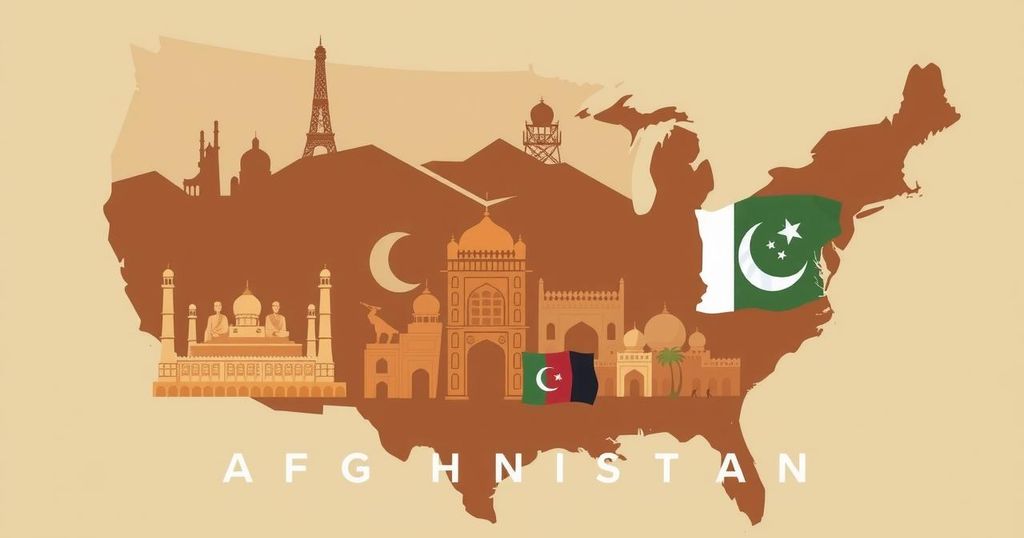Potential New Travel Ban May Affect Pakistan and Afghanistan
The US may introduce travel restrictions on Pakistan and Afghanistan as President Trump seeks to expand the previous Muslim ban. A report regarding this is anticipated on March 12. Concerns are raised about the implications for thousands of Afghans and Pakistanis awaiting resettlement amid ongoing discussions of security and vetting processes.
The United States may soon impose travel restrictions on individuals from Pakistan and Afghanistan as part of an expansion of President Donald Trump’s initial Muslim ban. A report on this matter is expected to reach the White House on March 12, following Trump’s order in January to review visa-approval processes and enhance vetting for visitors. Shawn Vandiver of AfghanEvac expressed concerns regarding the potential inclusion of these countries in a list of nations facing travel bans.
Officials from Pakistan remain hopeful that the country will be excluded from the proposed restrictions, particularly due to recent acknowledgments from Trump and other US officials praising Pakistan for its cooperation in capturing a suspect involved in a suicide bombing that occurred in Kabul. During a recent Congressional address, Trump expressed gratitude to Pakistan for their assistance in apprehending the suspect, noting its significance for the families affected by the attack.
Trump’s January executive order directed agencies to identify nations with inadequate vetting processes for visitors, which may lead to outright bans on their nationals. There have been indications that a new ban could be established imminently, potentially impacting security and vetting assessments of various nations. Under this prospective order, Afghan and Pakistani nationals who have pending resettlement applications or have been approved for Special Immigrant Visas could face barriers to entry.
The original Muslim travel ban enacted in 2017 created considerable confusion, instantly voiding the visas of many travelers who were en route to the US. The ban evolved through various legal challenges until a revised version was upheld by the Supreme Court in 2018. The anticipated travel restrictions may affect large numbers of Afghans who are vulnerable to retribution from the Taliban due to their previous associations with US forces during the two-decade conflict in Afghanistan. Currently, the estimated Pakistani population in the US surpasses one million, along with approximately 200,000 Afghans awaiting resettlement or Special Immigrant Visa processing, many of whom are currently residing in Pakistan or Afghanistan.
In summary, the potential expansion of the travel ban to include citizens of Pakistan and Afghanistan raises significant concerns, particularly for those individuals involved in resettlement processes. The continued advocacy from groups supporting Afghan evacuees suggests a hope for exemptions for refugees. As the situation develops, it remains essential to observe the implications for affected communities already facing hardships due to previous policy decisions.
Original Source: www.thenationalnews.com




Post Comment